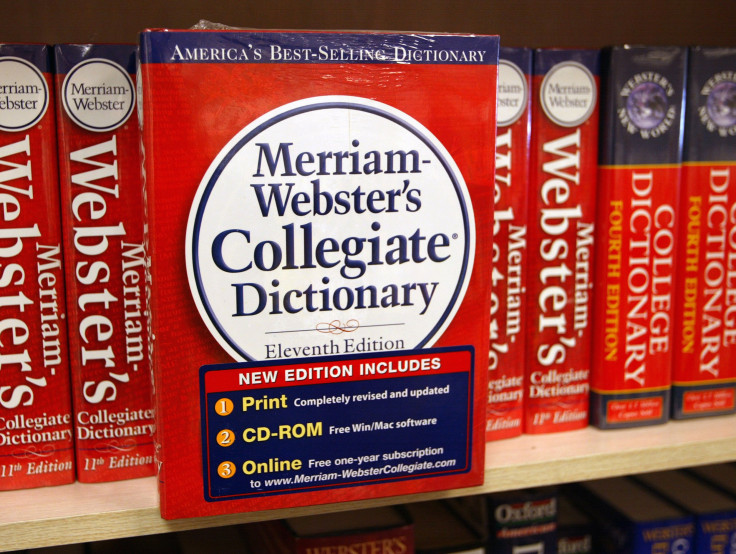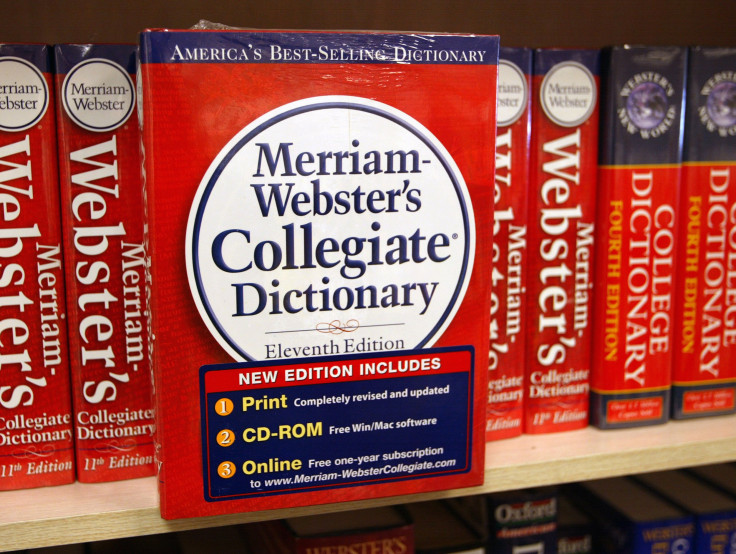Merriam-Webster Adds 'Mansplain,' 'Cryptocurrency' And Hundreds More To Dictionary

Several popular phrases from the public vernacular were legitimized Monday when Merriam-Webster announced the addition of 850 words, complete with definitions and dates of their first-known uses.
One of the new words is “wordie,” which means “a lover of words.” Merriam-Webster claimed this word dates all the way back to 1982, so it has had a long journey towards official recognition from one of the governing bodies of words.
Another oft-used term that had not been added until Tuesday is "demonym," which is the word for a person who is from a specific place, like “New Yorker” or “Canadian.” It dates back to 1990, but only got added this week.
Of course, Merriam-Webster also added several more recent buzzwords that have gained traction in the past decade. "Cryptocurrency" is now an officially recognized noun. It originated in 1990 but became a household term more recently with the emergence of Bitcoin.

The dictionary also added "mansplain," the verb popularly used to describe men condescendingly explaining basic facts to women. It was joined by fellow new addition "dumpster fire," which has become popular shorthand for anything that is exceptionally terrible. Both terms have origin dates of 2008, making them relatively new to many other words in the dictionary.
Twitter users will recognize "subtweet," a term from 2009 that describes the act of saying something critical about another Twitter user without including their username in the tweet.
"Antifa,"on the other hand, dates all the way back to 1930 but did not get added until this newest round of word additions. A shortening of “anti-fascist,” it became used more widely in 2017 to refer to radical political activists.
However, perhaps the most notable addition in terms of origin is "embiggen" which simply means “to make bigger.” As the Kansas City Star pointed out, that word was made up as a joke for a 1996 episode of “The Simpsons” and it stuck, like many other gags from that series have over the years.
Unfortunately, Merriam-Webster has yet to add “cromulent,” the other fake word from that gag.
The Oxford Dictionary added words popularized by “The Simpsons” in 2014, so there was a precedent for Merriam-Webster’s decision.
© Copyright IBTimes 2025. All rights reserved.





















